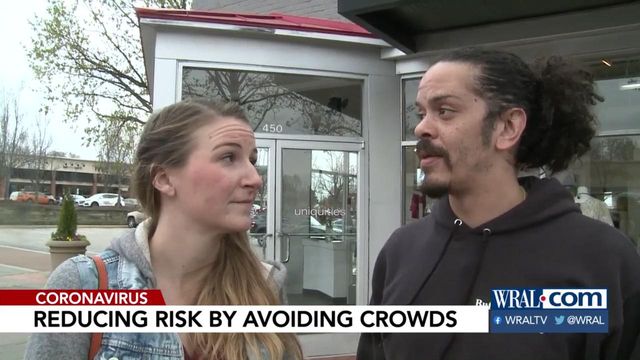Social distancing: How close is too close?
Cleveland Clinic's Dr. Matthew Faiman explains that keeping a safe distance between you and others is part of avoiding contagious illness. That means avoiding large groups in small spaces.
Posted — UpdatedPreventing illness now includes a greater awareness of what you touch and who you are near -- but that doesn't mean you have to stay inside all the time.
"I work in the restaurant business, so we've gone from 'in house' to all takeout," Kane said.
"I work at a bar venue, and based on that announcement by Roy Cooper today. I'm going to have a lot of time for myself," Hughes added.
"When you have an illness that is borne by droplets, by coughing and sneezing, there's more of a chance to spread it among the community if you're in close quarters," Faiman said.
In a crowd, you may never know when you're next to someone who is either getting sick or recovering from an illness.
Stay 6 feet away
What about lines and grocery stores? Some errands -- like buying food, gas and medicine -- are necessary.
"We will be able to have a vaccine that will be, in the future, the best way to prevent illness," he said.
According to Faiman, family members or neighbors can help those at higher risk of illness to stay home by getting things they need from the store or pharmacy.
Related Topics
• Credits
Copyright 2024 by Capitol Broadcasting Company. All rights reserved. This material may not be published, broadcast, rewritten or redistributed.






